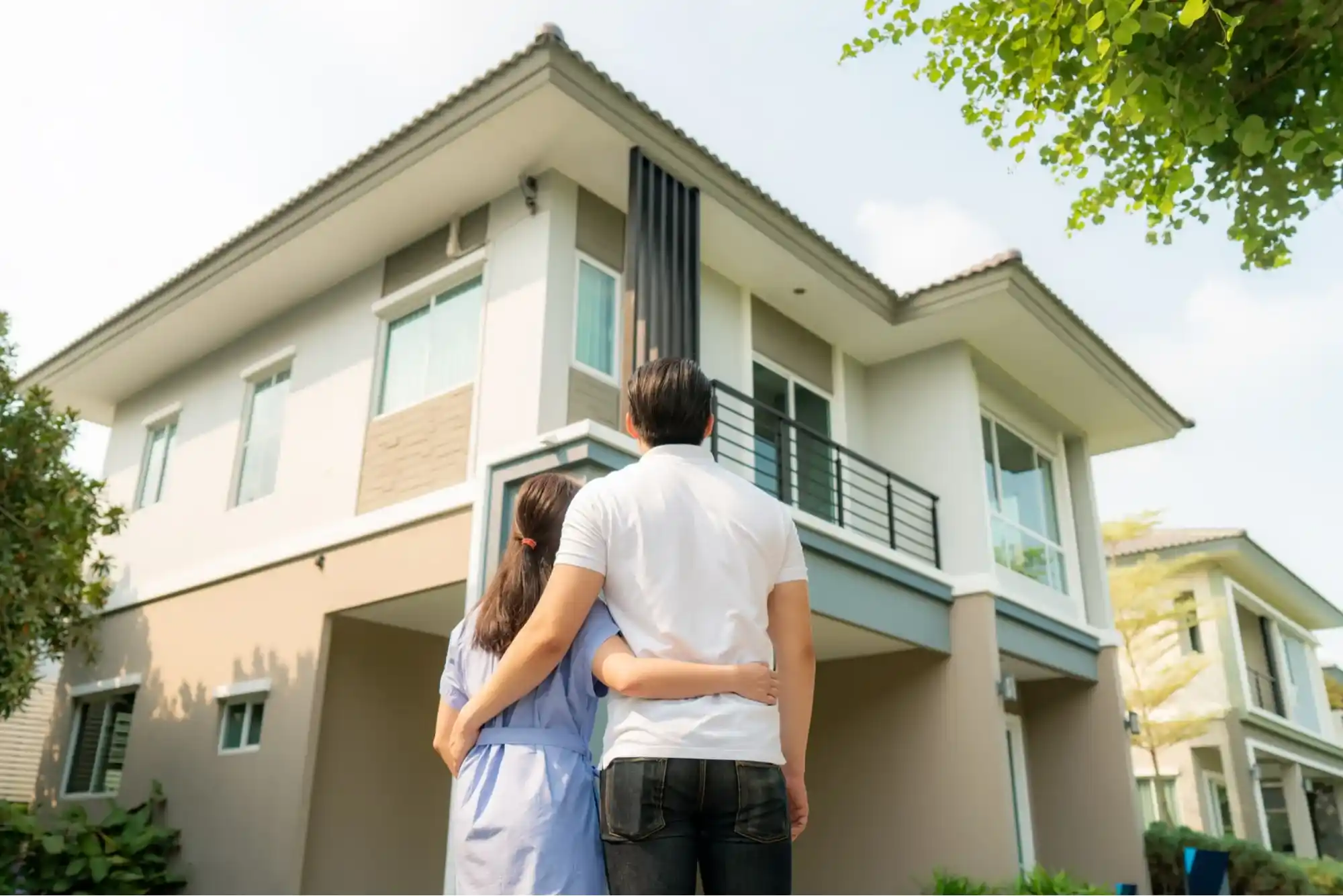Mobile homes, also known as manufactured homes, offer an affordable and flexible housing option for individuals and families. Unlike traditional homes built on permanent foundations, mobile homes are constructed in factories and transported to their final location. This unique process reduces costs and construction time, making mobile homes a popular choice for those looking to own property at a lower price point. There are also variations of mobile homes, such as modular homes, which are similar but assembled in sections on-site. Understanding the different types and benefits of mobile homes is essential when searching for the right property.
Types of Mobile Homes
Mobile homes come in various sizes and designs to fit different needs and budgets. The three main categories are:
Single-wide Mobile Homes: These are the most compact option, typically ranging between 600 and 1,200 square feet. Single-wide mobile homes have a narrow, elongated shape and are ideal for smaller families or individuals.
Double-wide Mobile Homes: Offering more space, double-wide mobile homes are often 1,200 to 2,000 square feet. They are made up of two units joined together, providing more room for families and a more traditional home layout.
Triple-wide and Larger Units: These are the most spacious mobile homes, often exceeding 2,000 square feet. Triple-wide homes can include features such as large living areas, multiple bathrooms, and customized designs for a luxurious mobile home experience.
Each type can be customized with different floor plans, interior finishes, and features, ensuring that homebuyers can find a property suited to their preferences.
Buying Mobile Homes: New vs. Used

When purchasing a mobile home, buyers must decide between buying a new or used home. Both options have distinct advantages and drawbacks.
New Mobile Homes: Buying a new mobile home gives you the flexibility to choose specific designs, layouts, and custom features. New homes are also equipped with modern appliances and energy-efficient materials, which can save you money on utilities. However, new mobile homes tend to be more expensive upfront.
Used Mobile Homes: Purchasing a used mobile home is often more affordable, but it requires careful inspection to ensure the home is in good condition. It’s essential to check for issues like roof leaks, plumbing problems, or outdated electrical systems. Used homes may also come with fewer customization options, but they can be a great choice for budget-conscious buyers.
How to Find Mobile Homes for Sale
There are several ways to locate mobile homes for sale, depending on your preferences and location.
Online Listings: Websites dedicated to mobile home sales, such as Zillow or Craigslist, are excellent places to start your search. These platforms allow you to filter options based on price, size, and location.
Real Estate Agents: Working with a real estate agent who specializes in mobile homes can provide access to listings not easily found online. Agents can also offer guidance on pricing, inspections, and negotiations.
Local Mobile Home Communities: Visiting mobile home parks in your area can help you discover homes for sale directly from the community or from residents looking to sell their homes privately.
Mobile Home Shows: Attending mobile home expos or shows allows you to see a variety of new models and meet with manufacturers or dealers to discuss options and financing.
Financing Options for Mobile Homes
Financing a mobile home is different from securing a traditional mortgage for a standard home. However, several options are available:
| Loan Type | Description |
|---|---|
| Mobile Home Loans | These loans are specifically designed for manufactured homes and have lower rates. |
| FHA Loans | Government-backed loans for mobile homes that meet specific HUD requirements. |
| Personal Loans | Unsecured loans that can be used for purchasing mobile homes but often have higher interest rates. |
| Alternative Financing | Rent-to-own or lease options, often provided by mobile home parks. |
Each financing option has its pros and cons, depending on factors such as your credit score, down payment, and the mobile home’s location.
Mobile Home Parks and Communities
Mobile home parks offer a community-based living environment where homeowners lease the land while owning the home. Some parks are age-restricted (55+), while others are open to families of all ages.
Finding the Right Community: Consider factors such as location, amenities (pools, playgrounds, etc.), and monthly fees. Mobile home parks typically charge a lot rent, which covers the use of the land and communal facilities.
Costs and Amenities: Lot rent varies based on location, park amenities, and the size of the lot. Some parks offer pools, clubhouses, and other community perks, making them attractive options for residents.
Park Ownership vs. Renting Land: Some mobile home owners prefer to purchase land for their homes, eliminating the need to pay rent to a park. This option is more costly but provides long-term savings and more freedom in homeownership.
Mobile Home Legal Considerations
Mobile homes are subject to various legal requirements, especially concerning zoning laws and property regulations.
Zoning Laws: Not all areas allow mobile homes, and zoning regulations may restrict the location of mobile homes within certain communities or cities. It’s important to verify whether your desired location is zoned for mobile homes.
Title and Registration: Mobile homes must be titled and registered similarly to vehicles, and transferring ownership requires following specific state regulations.
Taxes and Insurance: Mobile home owners must pay property taxes and ensure their homes are adequately insured. Insurance coverage may differ from traditional homeowners’ policies, with specialized options available for mobile homes.
Selling a Mobile Home
If you’re looking to sell your mobile home, proper pricing and marketing are crucial for attracting buyers.
Pricing and Marketing: Set a competitive price based on the home’s condition, location, and market trends. Use online listings, social media, and local classifieds to reach potential buyers.
Preparing for Sale: Make any necessary repairs and ensure the home is in good condition. Staging your mobile home with clean, clutter-free spaces can also help attract buyers.
Mobile Home Maintenance and Upkeep
Mobile homes, like any property, require regular maintenance to keep them in good condition.
Common Maintenance Tasks: Regular roof inspections, cleaning gutters, checking plumbing systems, and maintaining the home’s foundation are essential for long-term durability.
Extending the Home’s Life: Use high-quality materials for repairs and invest in energy-efficient upgrades to reduce utility costs and prolong the home’s lifespan.
Renovation Ideas: Remodeling kitchens, bathrooms, and living spaces can significantly increase the value of a mobile home and enhance comfort for the homeowner.
Mobile Home Living Lifestyle

Living in a mobile home offers a unique lifestyle that appeals to a wide range of individuals, from retirees to young families.
Affordable Living: Mobile homes are often more affordable than traditional homes, making them a great option for those seeking to reduce housing costs.
Community Life: Many mobile home parks foster a strong sense of community, with residents often participating in social activities and events.
Trends in Mobile Home Living: As housing prices rise, mobile homes are becoming more popular, and modern designs have made them a more attractive option than ever before.
Frequently Asked Questions (FAQs)
Q1: Are mobile homes a good investment?
Yes, mobile homes are an affordable housing option and can be a good investment if well-maintained and located in desirable areas.
Q2: What is the difference between a mobile home and a manufactured home?
The terms are often used interchangeably, but technically, mobile homes are those built before 1976, while manufactured homes are built according to HUD standards after that year.
Q3: Can I get a traditional mortgage for a mobile home?
In most cases, mobile homes are financed through specialized loans rather than traditional mortgages, but some may qualify for FHA loans or other government-backed financing.
Q4: Do mobile homes depreciate in value?
Mobile homes can depreciate over time, especially if not properly maintained, but homes in well-kept communities with added features may retain or increase in value.
Q5: How long do mobile homes last?
With proper maintenance, mobile homes can last 30-50 years or longer, depending on the quality of construction and care.
Mobile homes are a versatile and affordable housing option for those looking for a flexible lifestyle. Whether you’re buying a new or used mobile home, the process offers unique advantages, from customizable designs to community living. By understanding the types, financing options, and legal considerations, you can make an informed decision and find the mobile home that best suits your needs.




